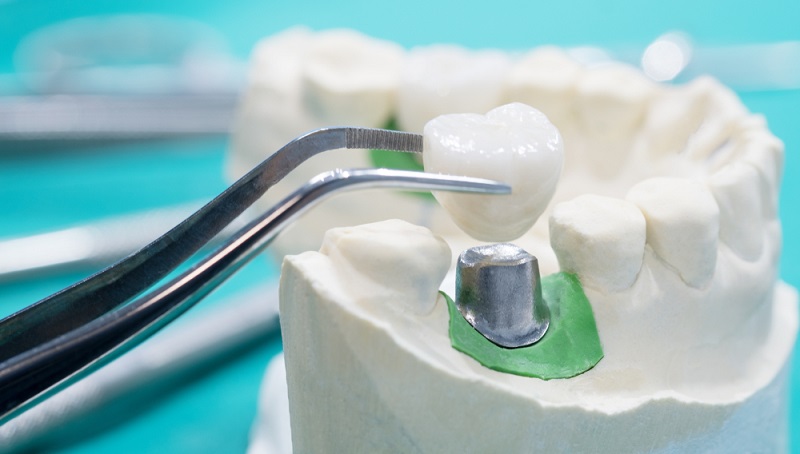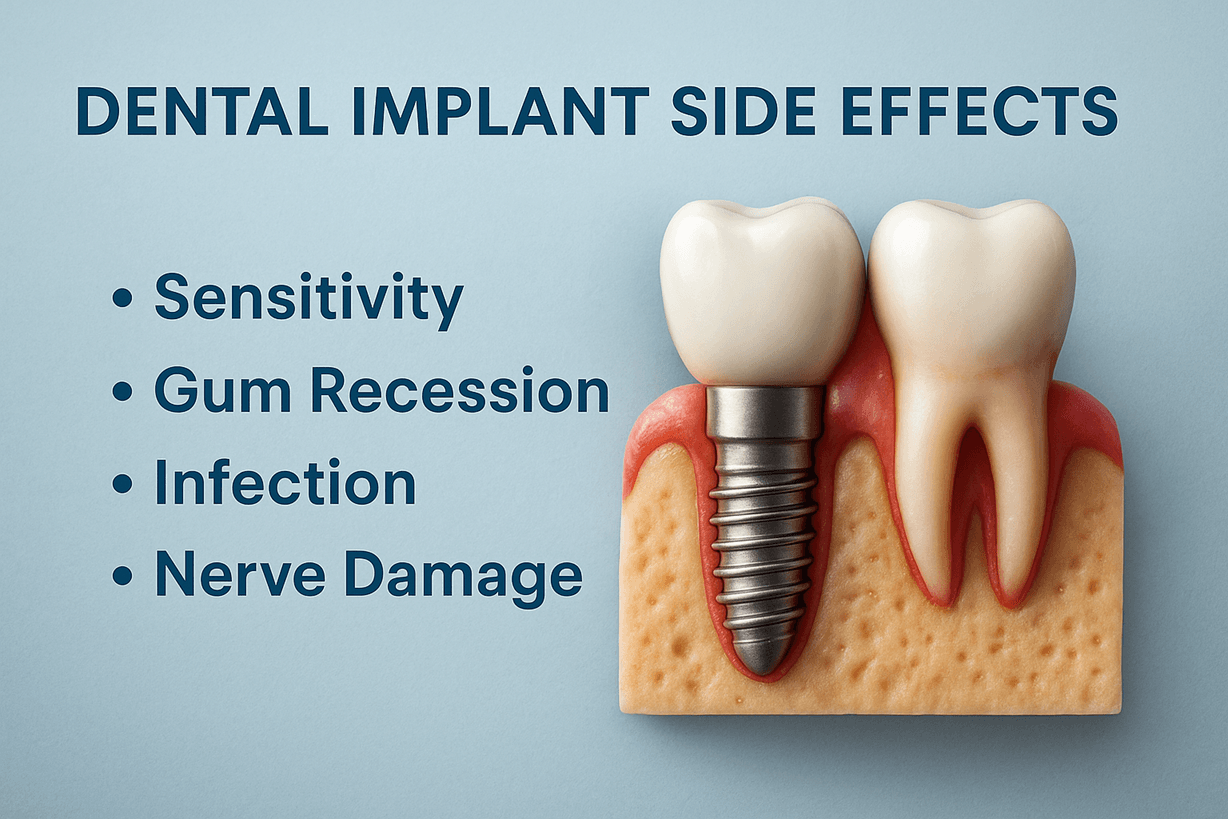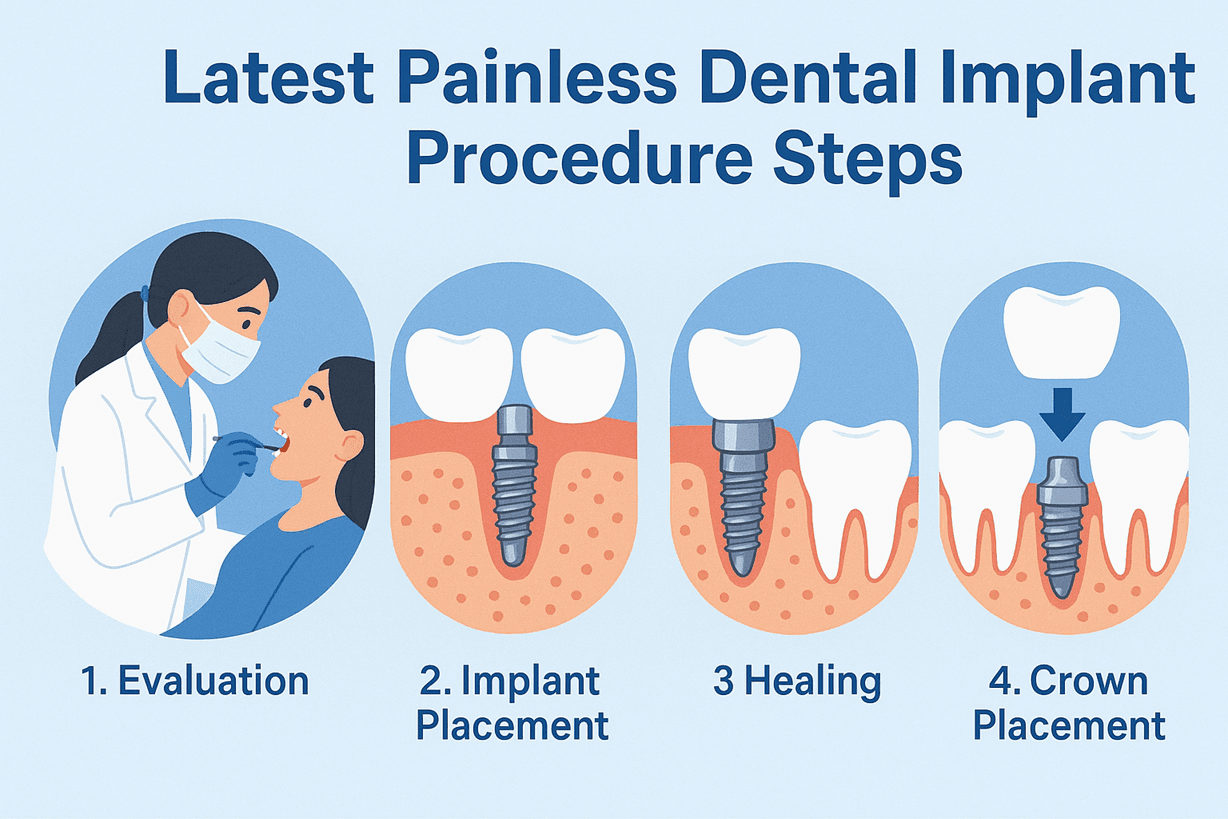Contents
Your smile is one of the first things people notice about you, so it's important to make sure it looks its best.
If you're considering improving your teeth with cosmetic dentistry, two popular options are dental veneers and crowns. But how do you know which treatment is right for your unique needs?

In this blog post, we'll explore the differences between veneers and crowns and help guide you in making the best decision for your smile. Get ready to show off those pearly whites!
Introduction to Dental Veneers and Crowns
There are two main types of dental veneers: porcelain and composite. Porcelain veneers are made from a thin layer of porcelain that is bonded to the front of your teeth.
Composite veneers are made from a mixture of plastic and tooth-coloured materials that are bonded to the front of your teeth.
Dental crowns are also made from either porcelain or composite materials, but they encircle the entire tooth. Crowns are usually used when a tooth is too damaged to be repaired with a veneer.
So, how do you know which treatment is best for you? The answer depends on several factors, including the condition of your teeth, your budget, and your personal preferences.
If you have minor chips or cracks in your teeth, then dental veneers may be the best option for you. Veneers can also be used to correct teeth that are slightly misaligned or stained. However, if your tooth damage is more severe, then a dental crown may be necessary.
Crowns are also often used to restore dental implants or support a dental bridge. If you are missing one or more teeth, then talk to your dentist about whether dental veneers or crowns would be the best solution for you.
Understanding the Differences between Veneers and Crowns
When it comes to improving your smile, there are a few different options to choose from. Two of the most popular choices are veneers and crowns.
The differences between veneers and crowns will help you make an informed decision about which treatment is best for your smile.
Teeth Veneers
- Veneers are thin, custom-made shells that are designed to cover the front surface of your teeth.
- They are usually made from porcelain or composite material and can be used to correct a variety of cosmetic concerns, such as gaps, chips, and stains.
- Veneers are less invasive than crowns and can usually be completed in two visits to the dentist.
Dental Crowns
- Crowns are also known as caps. They are larger than veneers and cover the entire tooth.
- Crowns can be made from a variety of materials, including porcelain, ceramic, metal, or resin.
- Crowns are typically used to restore a tooth that has been damaged by decay or injury.
- Unlike veneers, crowns require more than one visit to the dentist and may require some temporary dental work while your permanent crown is being made.
So which option is right for you? If you have minor cosmetic concerns, such as gaps or stains, then veneers may be the best choice for you.
If you have more significant damage to your teeth, such as decay or an injury, then dental crowns may be the best choice for you.
Making a Decision: Which Treatment is Right for You?
The decision of which treatment is right for you will ultimately come down to your specific needs and goals.
If you're looking for a quick and easy way to enhance your smile, veneers may be the best option. However, if you have significant damage to your teeth, crowns may be a better choice.
Talk to your dentist about which treatment option is right for you. They'll be able to help you make an informed decision based on your individual needs and goals.
Pros and Cons of Veneers and Crowns
When it comes to improving your smile, you have a few different options available to you. Two of the most popular are veneers and crowns.
Both have their own set of pros and cons that you should take into consideration before making a decision.
Veneers
They are thin pieces of porcelain that are bonded to the front of your teeth. They can be used to correct a variety of cosmetic issues, such as gaps, chips, and stains.
Veneers are also less invasive than crowns and can be completed in just two visits to the dentist.
However, they are not as durable as crowns and may need to be replaced every 5-10 years.
Crowns
They are caps that cover the entire tooth.
They are usually made from porcelain or ceramic and can be used to correct both cosmetic and structural issues.
Dental crowns are more durable than veneers and can last up to 15 years with proper care.
However, they require more preparation than veneers and can take up to three visits to the dentist to complete.
So, which is right for you? The best way to decide is to consult with your dentist. They will be able to assess your individual needs and recommend the best treatment for your smile
Teeth Veneer and Crowns Cost Comparison
When it comes to your smile, you want to choose the best treatment possible. But how do you know if dental veneers or crowns are the right choices for you? The answer may come down to cost.
Dental veneers are typically more expensive than crowns. The average cost of veneers is Rs. 12,000-20,000 per tooth, while the average cost of crowns is Rs. 8,000-15,000 per tooth.
However, there are a few factors that can affect the price of veneers, including the type of veneer and the number of teeth being treated.
Crowns are usually covered by insurance, while veneers may not be. If your insurance does cover veneers, they may only cover a portion of the cost.
So, if you're considering veneers, be sure to check with your insurance company first to see what's covered.
Tips for Proper Care After Treatment
After you've had dental veneers or crowns placed, it's important to take good care of them to ensure they last.
Here are some tips for proper care:
- Brush and floss your teeth regularly to keep them clean and free of plaque.
- See your dentist for regular checkups and cleanings.
- Avoid biting or chewing on hard objects, which can damage the veneers or crowns.
- Be careful with teeth whitening products, as they can sometimes cause discolouration. If you do use them, be sure to follow the manufacturer's instructions carefully.
Conclusion
Ultimately, the decision between dental veneers and crowns often comes down to personal preference.
While both treatments can provide a beautiful smile, they each offer unique benefits that should be taken into account when making your choice.
Be sure to speak with your dentist before making a decision so you can determine which treatment is best for achieving the results you desire.
With careful consideration and professional guidance, you can ensure that your teeth look their absolute best!
Frequently Asked Questions
1. Which is better, crowns or braces?
Crowns and braces serve different purposes, so it's not really a matter of which one is better.
Braces are used to straighten teeth and correct bite issues, while crowns are typically used to strengthen and protect damaged teeth or to improve their appearance.
If you have damaged or weakened teeth, crowns may be the better option, while braces would be more appropriate if your teeth are misaligned.
2. Are crowns different from veneers?
Yes, crowns and veneers are different dental treatments. Crowns are caps that cover the entire tooth, while veneers are thin shells that are placed over the front of the tooth.
Crowns are typically used to restore damaged or decayed teeth, while veneers are often used to improve the appearance of discoloured or misshapen teeth.
3. Should I get crowns or veneers?
The choice between crowns and veneers depends on your specific dental needs. If you have a damaged or weakened tooth, a crown may be the better option, as it provides more protection and support.
However, if you have cosmetic issues like discolouration or misshapen teeth, veneers may be a better choice since they are designed to improve the appearance of teeth.
It's important to consult with a dentist who can assess your specific dental needs and recommend the best treatment option for you.
4. Which one lasts longer, veneers or crowns?
The lifespan of both veneers and crowns depends on various factors, including the material used, your oral hygiene habits, and how well you take care of your teeth.
Generally speaking, crowns tend to last longer than veneers, as they cover the entire tooth and provide more protection.
Porcelain veneers can last up to 10-15 years, while dental crowns can last up to 15-20 years or longer with proper care.
5. Which one is more expensive, crowns or veneers?
The cost of both crowns and veneers depends on various factors, including the material used, the complexity of the procedure, and the location of the dental practice.
Generally speaking, crowns tend to be more expensive than veneers, as they require more material and are more complex to place.
However, the cost can vary widely depending on your specific dental needs and the dentist you choose.
6. What looks more natural, crowns or veneers?
Both crowns and veneers can be designed to look very natural and blend in seamlessly with your other teeth.
However, veneers are generally considered to be more natural-looking since they are thinner and require less material to be removed from the tooth.
With advancements in dental technology, both crowns and veneers can be customized to match the colour and shape of your natural teeth, resulting in a very natural-looking smile.
Ultimately, the choice between crowns and veneers depends on your specific dental needs and aesthetic goals.



